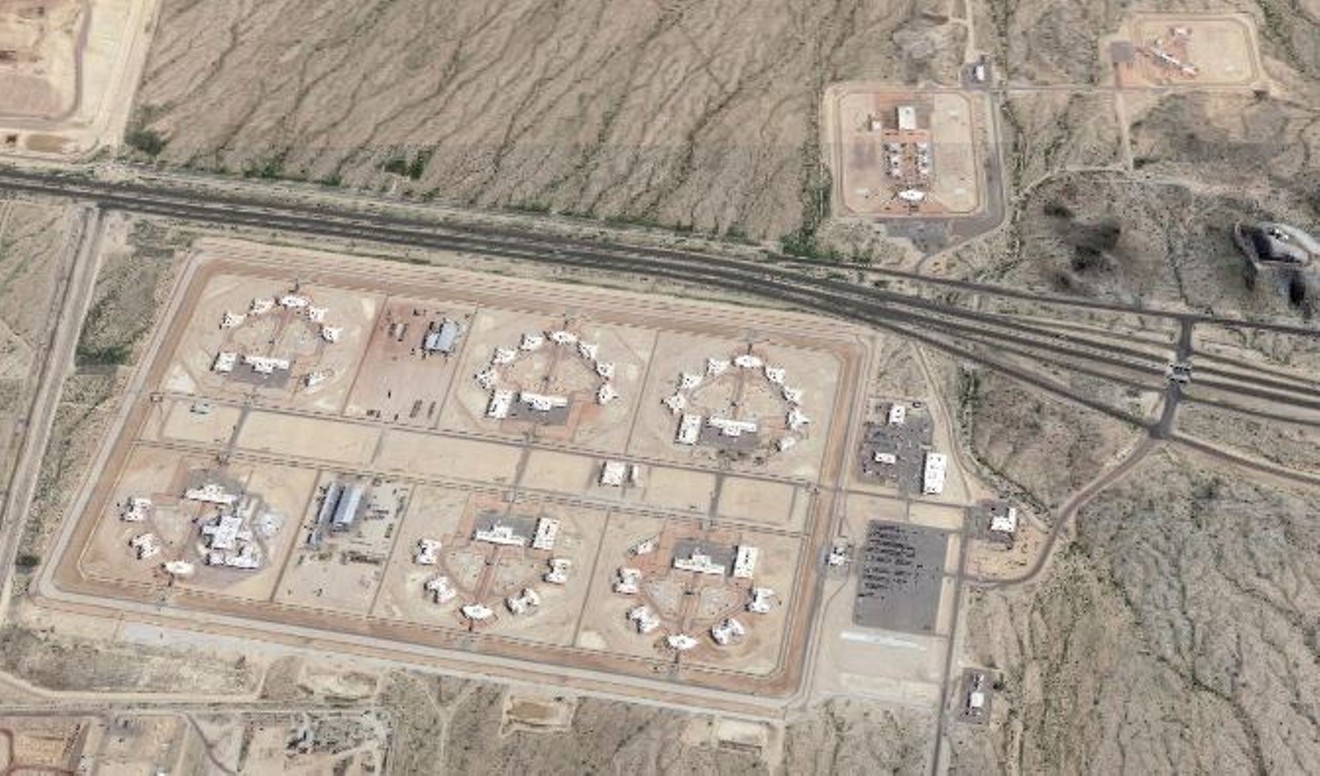A federal judge is giving the Arizona Department of Corrections and the group of incarcerated plaintiffs suing it 60 days to renegotiate a settlement from 2014.
The order, which U.S. District Judge Roslyn Silver filed on November 12 in the class-action lawsuit Parsons v. Shinn (formerly Parsons v. Ryan, until ADC got a new director this fall), follows her order from mid-October telling the plaintiffs and defendants to pick one of three options for moving with the case: They could reach a new settlement, renegotiate the existing one, or go to trial.
It follows ADC's longstanding noncompliance with the 2014 settlement, in which ADC agreed to meet new performance standards, among other stipulations, to improve medical, mental, and dental health care for those incarcerated in Arizona prisons.
Last week, the incarcerated plaintiffs, represented by the American Civil Liberties Union and the Prison Law Office, requested to go to trial. ADC, represented by private lawyers at the firm Struck Love Bojanowski & Acedo, asked to renegotiate.
"The Court concludes that allowing the parties a sixty-day period to attempt settlement is appropriate," Judge Silver wrote. "Each side must approach these renewed negotiations with the goal of reaching an agreement which will finally end this litigation.
Silver proposed that, unless anyone objected, a magistrate judge who had previously been involved in the case would preside over the renegotiations. The plaintiffs and defendants have until today, November 15, to file any objections.
By January 13, 2020, they are required to file a status report on their discussions. If talks collapse before then, the plaintiffs and defendants must file a joint status report within three days of that demise, Silver wrote.
She also gave the parties until December 1 to file a brief with ideas for "remedies" for ADC's noncompliance, which dates back years.
In 2017, U.S. Magistrate Judge David K. Duncan, who's now retired, threatened to fine the department $1,000 for every failure to comply with a performance measure. The following June, he ordered it to pay $1.4 million.
“The inescapable conclusion is that defendants are missing the mark after four years of trying to get it right. Their repeated failed attempts, and too-late efforts, to take their obligation seriously demonstrate a half-hearted commitment that must be braced,” he wrote in his contempt order.
His successor in the case, Silver, has similarly cited Arizona's "continued non-compliance," and she, too, has threatened to fine the department.
In August, she said that the department could owe penalties of $50,000 for every missed performance measure — as much as $1.2 million. Silver has yet to issue a decision as to whether she'll impose those fines.
Corene Kendrick, an attorney with the Prison Law Office, said her only reservation about renegotiating the settlement without the threat of a trial was the question of how ADC would approach the negotiations.
"We don't necessarily have that kind of hammer [a trial] hanging over ADC's head to really get down to negotiating in good faith," Kendrick said. "Defendants for years have been saying that this agreement we signed in 2014 wasn't enforceable."
In a filing in early November, the Prison Law Office told Silver that it wanted a prerequisite that would require the state to agree that any revised settlement resulted from the renegotiations would be enforceable.
The judge declined to impose that request.
Kendrick said she did not interpret the order to mean that the renegotiated settlement had to be complete in 60 days, but that instead, the parties had to make "serious progress" by then.
In response to a request for comment, ADC sent a statement identical to previous statements it has issued in response to queries regarding Parsons v. Shinn.
It called the health and well-being of inmates "a priority," noting that "The state has an obligation to provide inmates the constitutionally-mandated healthcare they are entitled."
"We remain committed to improving inmate health care and listening — not just to inmates and staff, but family members and community partners," it added.
[
{
"name": "Air - MediumRectangle - Inline Content - Mobile Display Size",
"component": "18478561",
"insertPoint": "2",
"requiredCountToDisplay": "2"
},{
"name": "Editor Picks",
"component": "16759093",
"insertPoint": "4",
"requiredCountToDisplay": "1"
},{
"name": "Inline Links",
"component": "17980324",
"insertPoint": "8th",
"startingPoint": 8,
"requiredCountToDisplay": "7",
"maxInsertions": 25
},{
"name": "Air - MediumRectangle - Combo - Inline Content",
"component": "16759092",
"insertPoint": "8th",
"startingPoint": 8,
"requiredCountToDisplay": "7",
"maxInsertions": 25
},{
"name": "Inline Links",
"component": "17980324",
"insertPoint": "8th",
"startingPoint": 12,
"requiredCountToDisplay": "11",
"maxInsertions": 24
},{
"name": "Air - Leaderboard Tower - Combo - Inline Content",
"component": "16759094",
"insertPoint": "8th",
"startingPoint": 12,
"requiredCountToDisplay": "11",
"maxInsertions": 24
}
]











